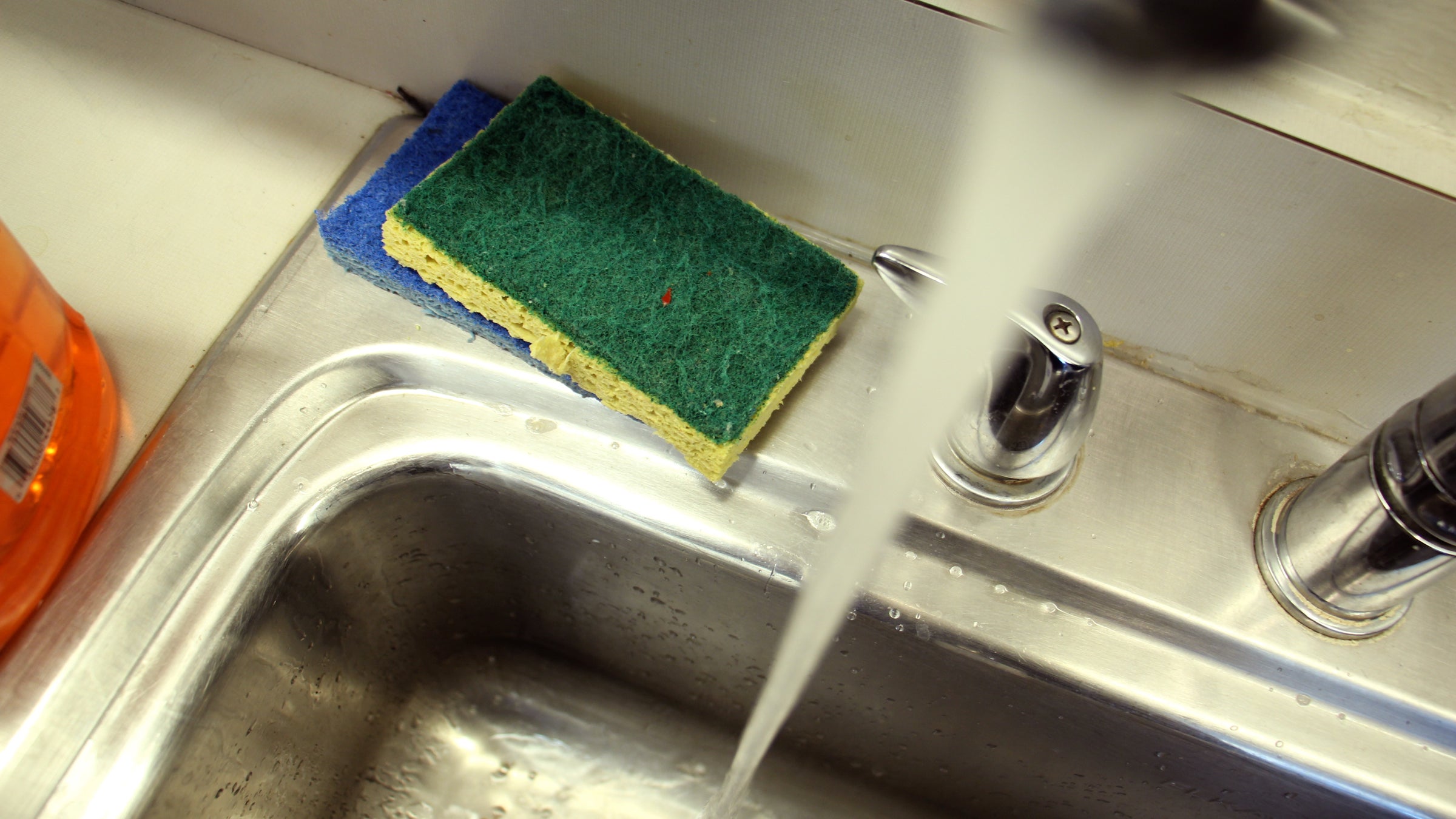Health hazards lurk in home kitchens, Drexel study finds

A Drexel study finds that many home kitchens would not pass a health inspection. (Emma Lee/WHYY)
When you head home after work and whip up dinner for your family, you could be dishing out food-borne illnesses with that roasted chicken and salad.
A recent Drexel University study depicted just that sort of scene — complete with sponges covered in bacteria, improperly stored raw meat, and infestations of mice and flies.
“Many homes, 44 percent, had fecal coliforms,” said Jennifer Quinlan, associate professor with the Department of Nutrition Sciences at Drexel University. “And they were often associated with the wet areas that we might think of — the kitchen sink, the sponges and dishcloths. We found E.coli, again, most often in the kitchen sink. And then we found some specific pathogens, we found listeria.”
The researchers, who studied 100 home kitchens in Philadelphia, found some unexpected results, she said.
“I knew we would find what we call ‘bacterial indicators,’ these coliforms and fecal coliforms. I knew that we would find those.
“I wasn’t as sure whether we would find actual pathogens, that we know get people sick. But we found Staphylococcus aureus in 39 percent of the homes,” Quinlan said. “Most often from countertops and refrigerator doors.” Those sorts of health code violations could get a commercial restaurant kitchen in real trouble. But in the home, it’s the responsibility of the homeowner. For homes with a pest problem, Quinlan recommended extra cleaning — especially before putting food on a surface that a mouse may have touched.
To conduct the study, the researchers took swabs of the kitchen — including the sink and refrigerator — and also tested the kitchen sponge. The research was recently published in Food Protection Trends and the Journal of Food Protection.
WHYY is your source for fact-based, in-depth journalism and information. As a nonprofit organization, we rely on financial support from readers like you. Please give today.

